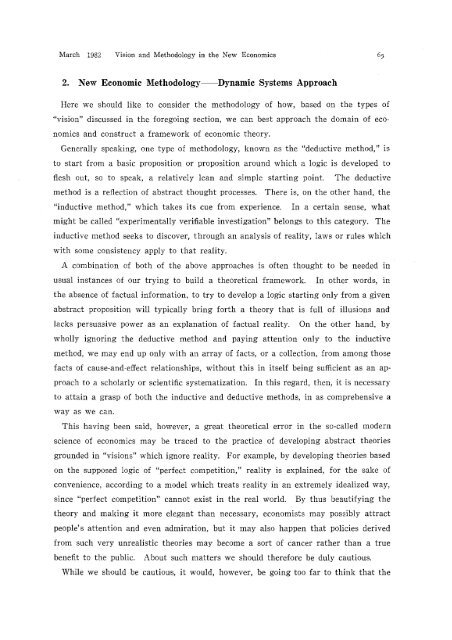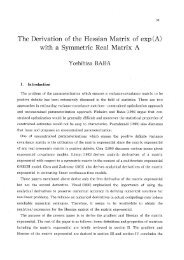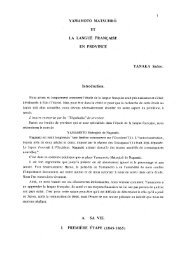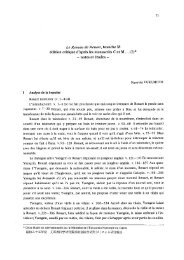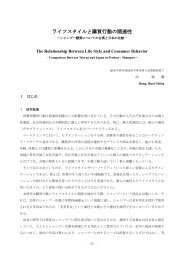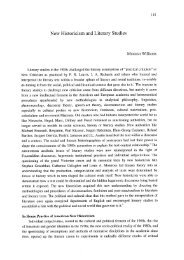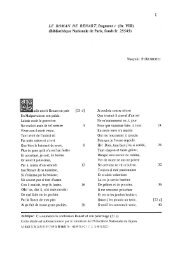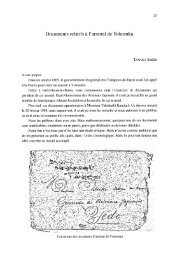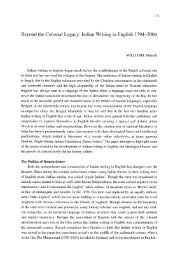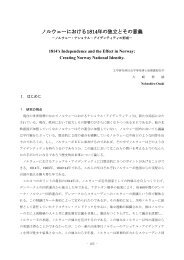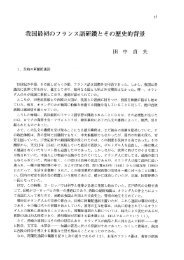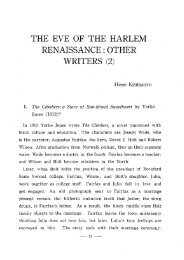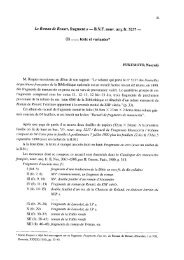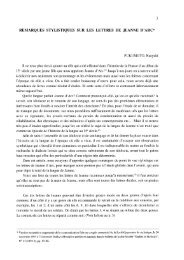vision and methodology in the new economics of global ...
vision and methodology in the new economics of global ...
vision and methodology in the new economics of global ...
You also want an ePaper? Increase the reach of your titles
YUMPU automatically turns print PDFs into web optimized ePapers that Google loves.
March 1982 Vision <strong>and</strong> Methodology <strong>in</strong> <strong>the</strong> New Economics65<br />
2. New Economic Methodology----Dynamic Systems Approach<br />
Here we should like to consider <strong>the</strong> <strong>methodology</strong> <strong>of</strong> how, based on <strong>the</strong> types <strong>of</strong><br />
"<strong>vision</strong>" discussed <strong>in</strong> <strong>the</strong> forego<strong>in</strong>g section , we can best approach <strong>the</strong> doma<strong>in</strong> <strong>of</strong> eco-<br />
nomics <strong>and</strong> construct a framework <strong>of</strong> economic <strong>the</strong>ory.<br />
Generally speak<strong>in</strong>g, one type <strong>of</strong> <strong>methodology</strong>, known as <strong>the</strong> "deductive method," is<br />
to start from a basic proposition or proposition around which a logic is developed to<br />
flesh out, so to speak, a relatively lean <strong>and</strong> simple start<strong>in</strong>g po<strong>in</strong>t. The deductive<br />
method is a reflection <strong>of</strong> abstract thought processes. There is, on <strong>the</strong> o<strong>the</strong>r h<strong>and</strong>, <strong>the</strong><br />
"<strong>in</strong>ductive method ," which takes its cue from experience. In a certa<strong>in</strong> sense, what<br />
might be called "experimentally verifiable <strong>in</strong>vestigation" belongs to this category. The<br />
<strong>in</strong>ductive method seeks to discover, through an analysis <strong>of</strong> reality, laws or rules which<br />
with some consistency apply to that reality.<br />
A comb<strong>in</strong>ation <strong>of</strong> both <strong>of</strong> <strong>the</strong> above approaches is <strong>of</strong>ten thought to be needed <strong>in</strong><br />
usual <strong>in</strong>stances <strong>of</strong> our try<strong>in</strong>g to build a <strong>the</strong>oretical framework. In o<strong>the</strong>r words, <strong>in</strong><br />
<strong>the</strong> absence <strong>of</strong> factual <strong>in</strong>formation, to try to develop a logic start<strong>in</strong>g only from a given<br />
abstract proposition will typically br<strong>in</strong>g forth a <strong>the</strong>ory that is full <strong>of</strong> illusions <strong>and</strong><br />
lacks persuasive power as an explanation <strong>of</strong> factual reality. On <strong>the</strong> o<strong>the</strong>r h<strong>and</strong>, by<br />
wholly ignor<strong>in</strong>g <strong>the</strong> deductive method <strong>and</strong> pay<strong>in</strong>g attention only to <strong>the</strong> <strong>in</strong>ductive<br />
method, we may end up only with an array <strong>of</strong> facts, or a collection, from among those<br />
facts <strong>of</strong> cause-<strong>and</strong>-effect relationships, without this <strong>in</strong> itself be<strong>in</strong>g sufficient as an ap-<br />
proach to a scholarly or scientific systematization. In this regard, <strong>the</strong>n, it is necessary<br />
to atta<strong>in</strong> a grasp <strong>of</strong> both <strong>the</strong> <strong>in</strong>ductive <strong>and</strong> deductive methods, <strong>in</strong> as comprehensive a<br />
way as we can.<br />
This hav<strong>in</strong>g been said, however, a great <strong>the</strong>oretical error <strong>in</strong> <strong>the</strong> so-called modern<br />
science <strong>of</strong> <strong>economics</strong> may be traced to <strong>the</strong> practice <strong>of</strong> develop<strong>in</strong>g abstract <strong>the</strong>ories<br />
grounded <strong>in</strong> "<strong>vision</strong>s" which ignore reality. For example, by develop<strong>in</strong>g <strong>the</strong>ories based<br />
on <strong>the</strong> supposed logic <strong>of</strong> "perfect competition," reality is expla<strong>in</strong>ed, for <strong>the</strong> sake <strong>of</strong><br />
convenience, accord<strong>in</strong>g to a model which treats reality <strong>in</strong> an extremely idealized way,<br />
s<strong>in</strong>ce "perfect competition" cannot exist <strong>in</strong> <strong>the</strong> real world. By thus beautify<strong>in</strong>g <strong>the</strong><br />
<strong>the</strong>ory <strong>and</strong> mak<strong>in</strong>g it more elegant than necessary, economists may possibly attract<br />
people's attention <strong>and</strong> even admiration, but it may also happen that policies derived<br />
from such very unrealistic <strong>the</strong>ories may become a sort <strong>of</strong> cancer ra<strong>the</strong>r than a true<br />
benefit to <strong>the</strong> public. About such matters we should <strong>the</strong>refore be duly cautious.<br />
While we should be cautious, it would, however, be go<strong>in</strong>g too far to th<strong>in</strong>k that <strong>the</strong>


